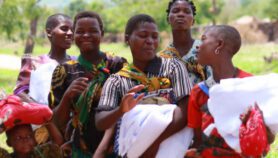By: David Dickson
Send to a friend
The details you provide on this page will not be used to send unsolicited email, and will not be sold to a 3rd party. See privacy policy.
The foundation set up by Microsoft founder Bill Gates has announced a grant of US$70 million towards research into the potential contribution of genomics to addressing global health problems, particularly in developing countries.
U$60 million of the money, being provided by the Bill & Melinda Gates Foundation, will be used to build new research space for the school of medicine at University of Washington in Seattle — Microsoft’s hometown — and for its department of genome sciences.
The remaining US$10 million will be used to fund collaborative global health programmes at the University of Washington that are related to genome sciences.
Commenting on the award, Gates pointed out that advances in genomics hold great promise for improving health in the developing world. “Now that the human genome has been fully sequenced, important work lies ahead in turning this achievement into improved health,” he said.
In recent years, the University of Washington has managed to attract a number of the world’s leading genome scientists, the most recent recruit being Robert Waterston, one of the chief architects of the Human Genome Programme, who was appointed in January to the William H Gates III chair in biomedical sciences.
Commenting on these appointments, Paul Ramsey, the university’s vice-president for medical affairs, said that the new funding meant that “now we will be able to give these exceptional individuals an environment that inspires and encourages the collaboration needed to fulfil genomics’ promise for improving global health”.
Gates has long been a supporter of ways in which advances in genetics and molecular biology may help improve living conditions in the developing world. Writing in the magazine Time three years ago, he argued that although genetically modified food had met fierce opposition among well-fed Europeans, “it's the poor and the hungry who need it most”.
Gates continued: "Biotech is not a panacea, but it does promise to transform agriculture in many developing countries. If that promise is not fulfilled, the real losers will be their people, who could suffer for years to come."
© SciDev.Net 2003
Related external articles:
Bill & Melinda Gates Foundation
University of Washington
Related article:













